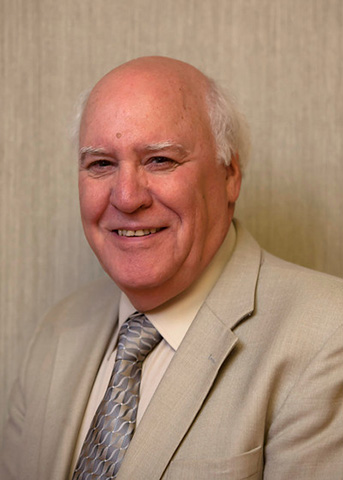Co-Founder, CITI Program
 Dr. Paul Braunschweiger, Professor Emeritus at the University of Miami Miller School of Medicine, where he co-founded the international CITI Program in research ethics education, died May 19, 2024.
Dr. Paul Braunschweiger, Professor Emeritus at the University of Miami Miller School of Medicine, where he co-founded the international CITI Program in research ethics education, died May 19, 2024.
Dr. Braunschweiger was a successful basic cancer researcher. He earned his Ph.D. at the University of Buffalo. After spending time at Allegheny General Hospital in Pittsburgh and at AMC Cancer Center in Denver, he came to the University of Miami in 1990, and in 1994 was promoted to Professor in the Department of Radiation Oncology. Dr. Braunschweiger conducted NIH-funded basic research in the sensitivity of tumor cells to ionizing radiation and authored numerous peer-reviewed papers on experimental cancer therapeutics and cellular radiation sensitivity.
He was appointed Chair of the University of Miami Institutional Animal Care and Use Committee and Director of the Office of the IACUC in 1997 and held this position for some 13 years.
In 2000, Dr. Braunschweiger and Karen Hansen of the Fred Hutchinson Cancer Center in Seattle founded the Collaborative Institutional Training Initiative (CITI) Program. CITI, administered at the University of Miami until its sale to the Biomedical Research Alliance of New York (BRANY) in 2016, provides a multi-language, customizable web-based instructional program in Human Subjects Protection and the Responsible Conduct of Research.
Reflections and memorials
- Sergio G. Litewka, MD, MPH, former director of CITI’s international initiatives:
In 2000, Department of Health and Human Services Secretary, Donna Shalala (later president of the University of Miami), articulated the need to strengthen the protections for human subjects in clinical trials in academic settings after several episodes that put public trust in scientific research at stake. She ordered the NIH and the FDA to “undertake an aggressive effort to improve education and training,” she wrote. “The objective is to ensure that all clinical researchers, research administrators, IRB members, and IRB staff receive appropriate training in bioethics and other issues related to research involving human subjects. This training will be required for all clinical investigators who receive NIH funds and will be a prerequisite to the receipt of all NIH grants.”**
Paul and Karen saw the need and the opportunities for creating a non-profit instructional model that could be used by all U.S. academic institutions and research centers. They assembled a team of experts on research ethics and the responsible conduct of research. The mission was to develop training modules that researchers could complete at their own pace, with successful completion being registered by their institution. This marked the inception of the Collaborative Institutional Training Initiative (CITI), a pioneering online platform for research ethics training and education.
When based at the University of Miami, the program expanded to reach more than 1.3 million learners at some 2,100 academic organizations in the United States and abroad.
The CITI Program is Paul’s indisputable legacy. For many of those who had the opportunity to enjoy his collegiality, talent and friendship, his legacy will go beyond CITI, and “Dr. B,” as everybody knew him, will remain in our memories.



 Dr. Paul Braunschweiger, Professor Emeritus at the University of Miami Miller School of Medicine, where he co-founded the international CITI Program in research ethics education, died May 19, 2024.
Dr. Paul Braunschweiger, Professor Emeritus at the University of Miami Miller School of Medicine, where he co-founded the international CITI Program in research ethics education, died May 19, 2024.